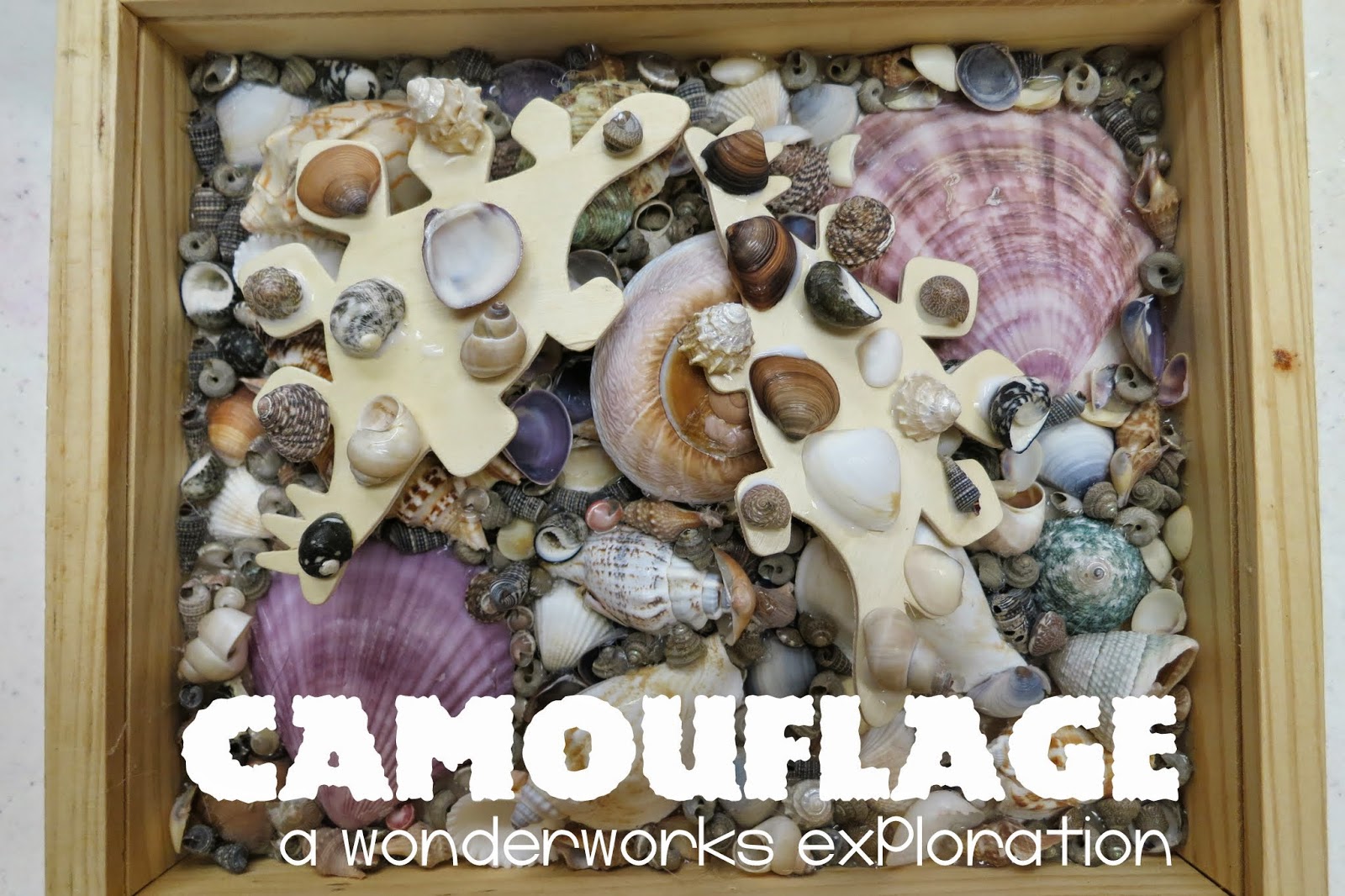How would you hide if you were an animal?
Today's Topic: Camouflage in Nature
Supplies:
m & m candies and Skittles candies (classic colors), sorted by color
bowls
patterned paper (find two matching papers and cut shapes from one sheet)
large pieces of fabric
Book:
Since Engineering is all about problem solving, let's solve the problem of how to hide using camouflage!
Prep work:
1. Pour one color of Skittles into a bowl and add in 3-6 m&m's in each color, including the color that matches the Skittles. Repeat for as many bowls as you'd like to use. (i found this idea here)
2. Cut shapes out of patterned paper. (this idea came from here)
What Kids Do: hid the shapes (butterflies in this case) on the full sheets of patterned papers.
tried to pick the m&m's out of the Skittles and noticed how the ones that were the same color were the most difficult to find quickly.
they also noticed how much fun it was when the candies stuck to your (slightly moist) hands...and also how much fun it is to make pictures with them.
One clever grown-up chose to camouflage candies on her colorful skirt!
Once again, we've partnered with the UW Geology Museum and this week they loaned us a set of wooden shadow boxes, each filled with textures from different environments -- shells, stones, flowers/leaves (fake) and dried moss. They also gifted us some wooden animal shapes and extra bits and pieces from those texture boxes and invited the kids to disguise the animals and "hide" them in one of the environments.
The kids also enjoyed wrapping themselves in the fabrics and trying to camouflage themselves:
Which baby sibling can YOU see more easily?
One kid pointed out that one of these shells looks like a giraffe. Probably not relevant to evolutionary camouflage, but an interesting observation, nonetheless!
Adult Challenge of the week: Ask open-ended questions (a classic challenge, but always worth a reminder!)
Hindsight Tips:
--Sorting candies according to the letter printed on them was a bit more challenging than I'd anticipated. The colors, size and shape of the two types were surprisingly VERY similar.
--Cut more butterflies (or whatever shape you choose) from the patterned paper. I cut only four of each and after a few of ours got glued down to their full sheet of patterned paper, suddenly there wasn't much of an activity left to do.
--Although the wooden shapes were nice, when we ran out, die-cut thin cardboard worked equally well.
Variations to try:
--This great lesson plan from Amy Koester via the Library as Incubator project--This super-cute color-changing chameleon craft
Related Apps: blah
















No comments:
Post a Comment